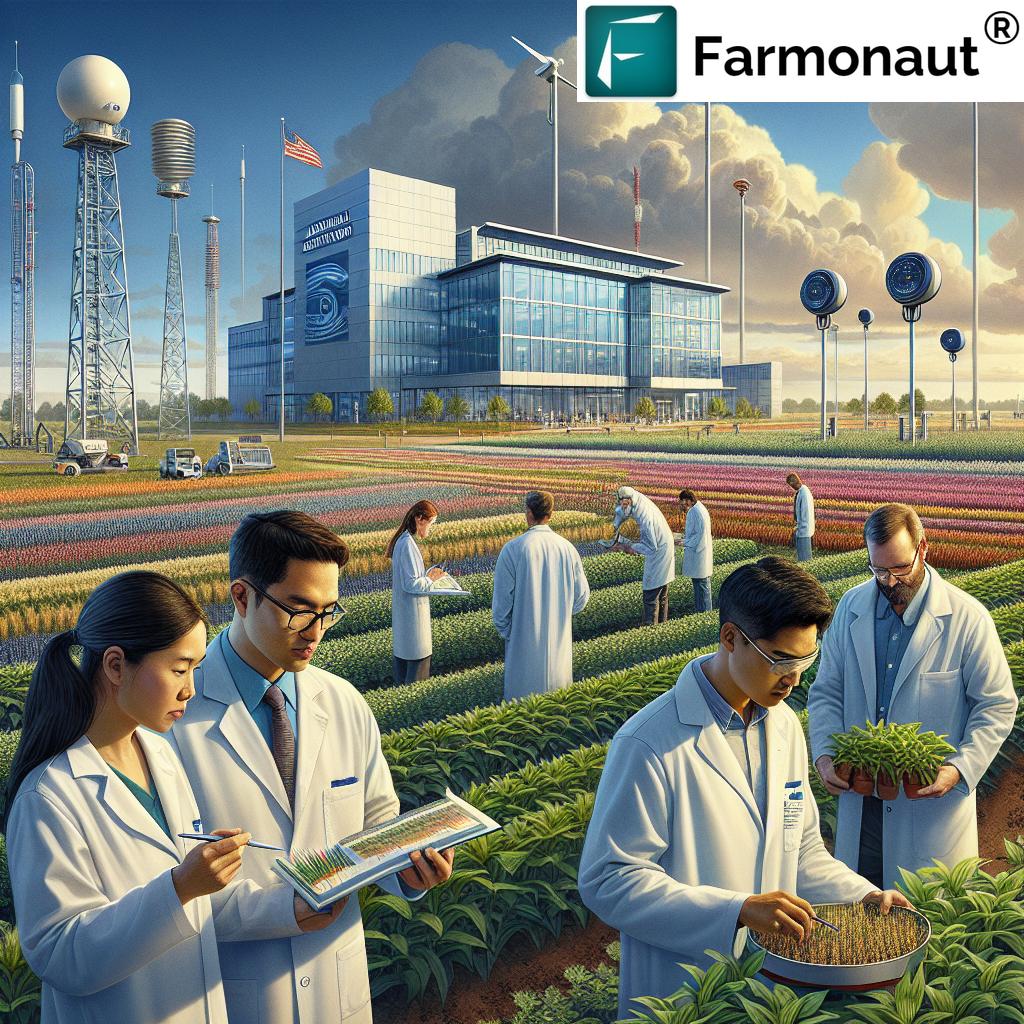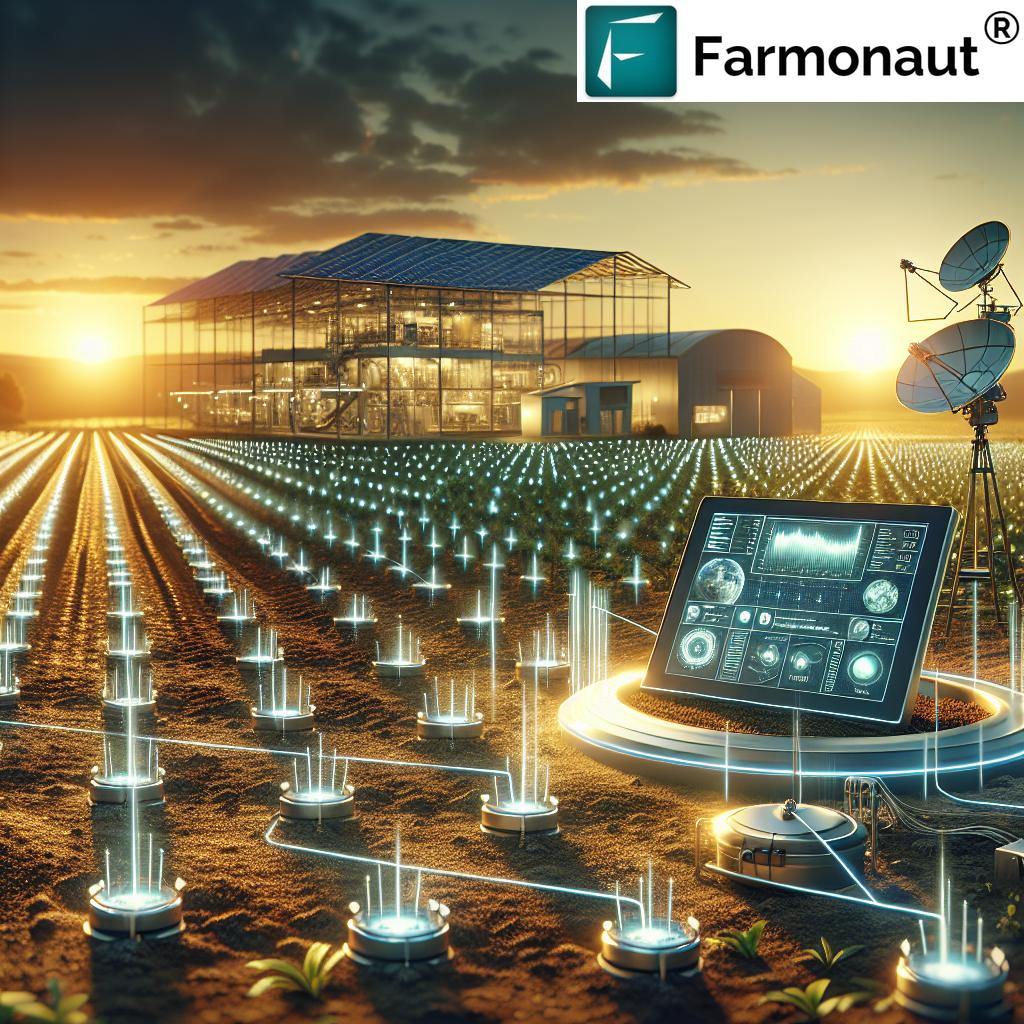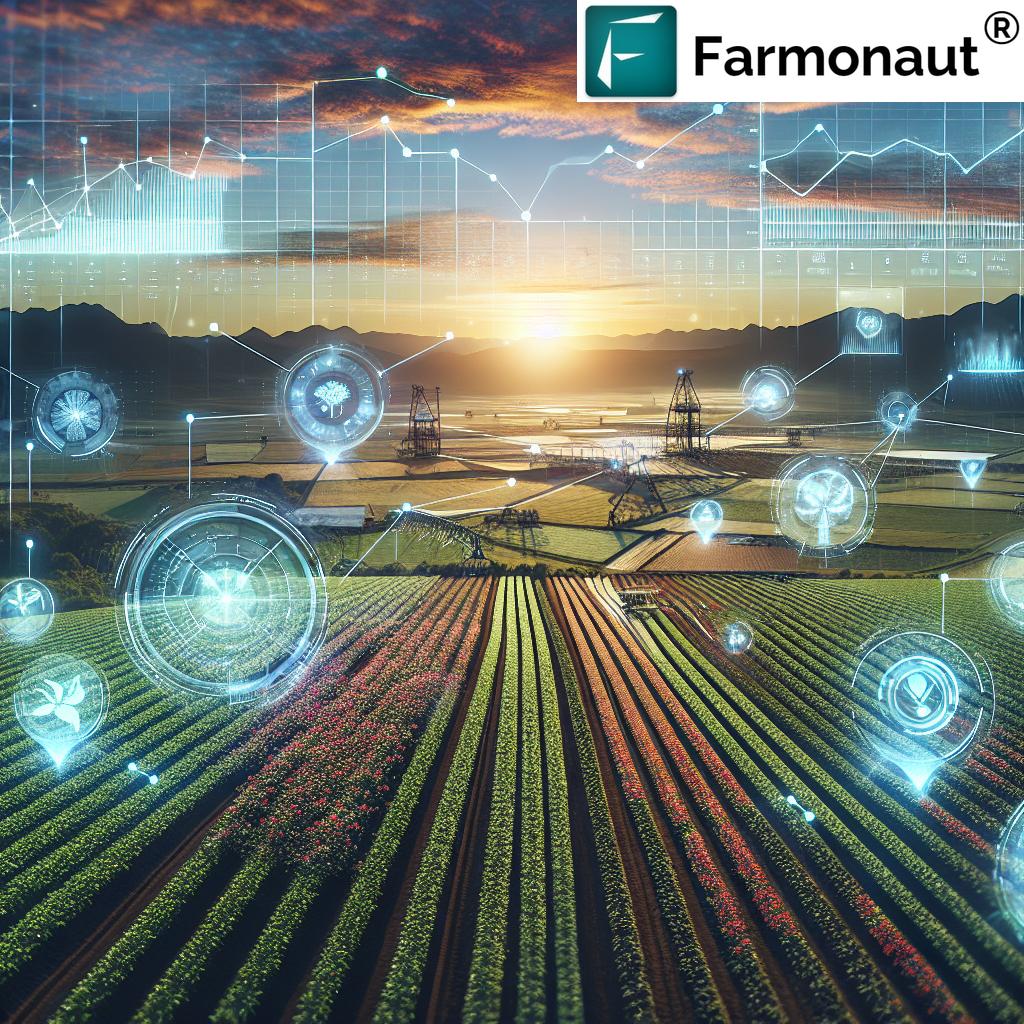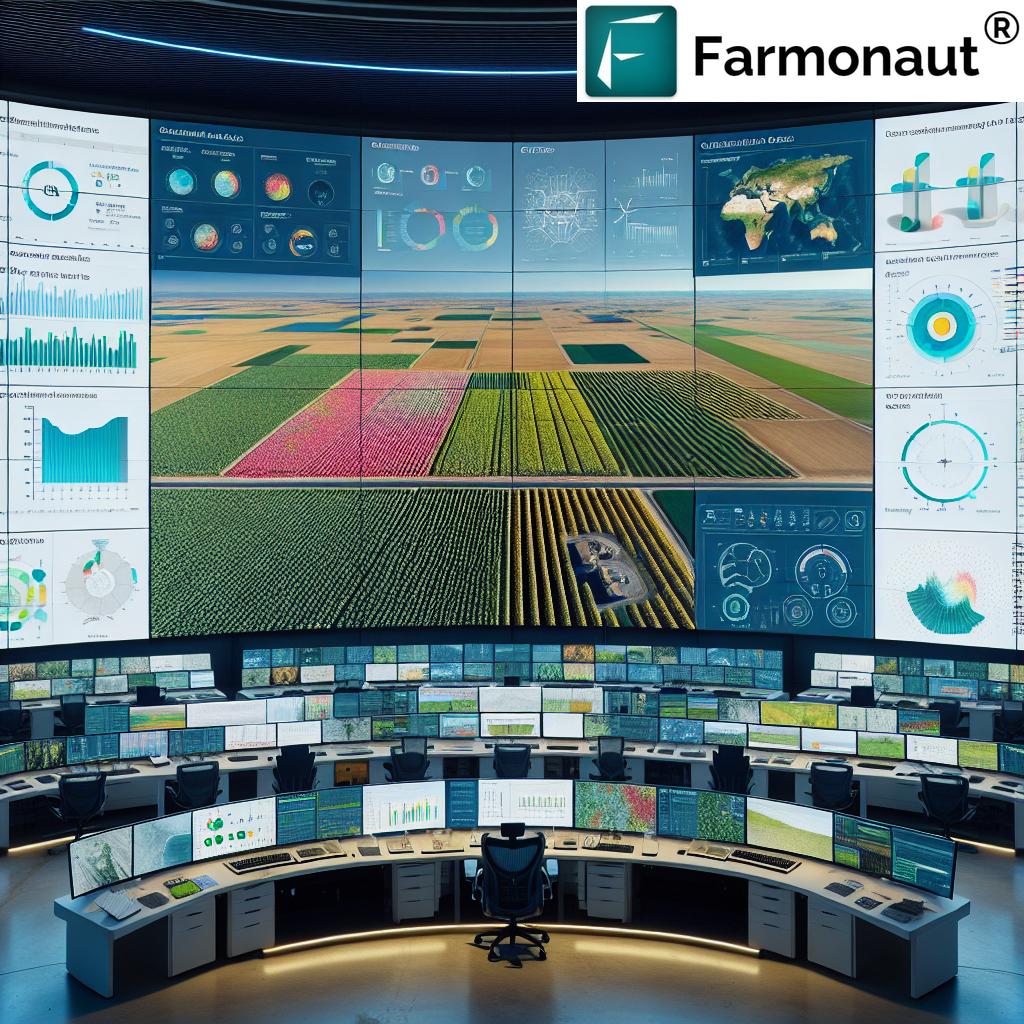🌟 Introduction to JEEVN AI: A Game-Changer for Texas Cotton Farmers
In the vast expanse of Texas cotton fields, where precision and efficiency are paramount, a new technological marvel is set to transform the agricultural landscape. Farmonaut’s Satellite-AI Based Farm Intelligence, known as JEEVN AI, is stepping in to eliminate guesswork and bring cutting-edge science to the forefront of cotton farming practices in the Lone Star State.
Texas, the leading cotton-producing state in the U.S., faces unique challenges in maintaining its agricultural dominance. With unpredictable weather patterns, water scarcity, and the constant threat of pests, Texas cotton farmers need innovative solutions to stay ahead. JEEVN AI emerges as that solution, offering precise, actionable insights tailored to the specific needs of Texas cotton growers.
🚀 How JEEVN AI Works: Bringing Space-Age Tech to Texas Fields
JEEVN AI is not just another farm management tool; it’s a sophisticated system that harnesses the power of artificial intelligence to revolutionize cotton farming in Texas. This cutting-edge AI system integrates multiple data sources to provide comprehensive farm intelligence:
- Satellite imagery of Texas cotton fields
- Local weather data from across the state
- Specific farm information and historical data
- Regional soil composition and characteristics
By analyzing this wealth of information, JEEVN AI delivers precise recommendations tailored to each Texas cotton farm’s unique needs. It’s like having a team of cotton farming experts at your fingertips, guiding you through every step of the growing season.
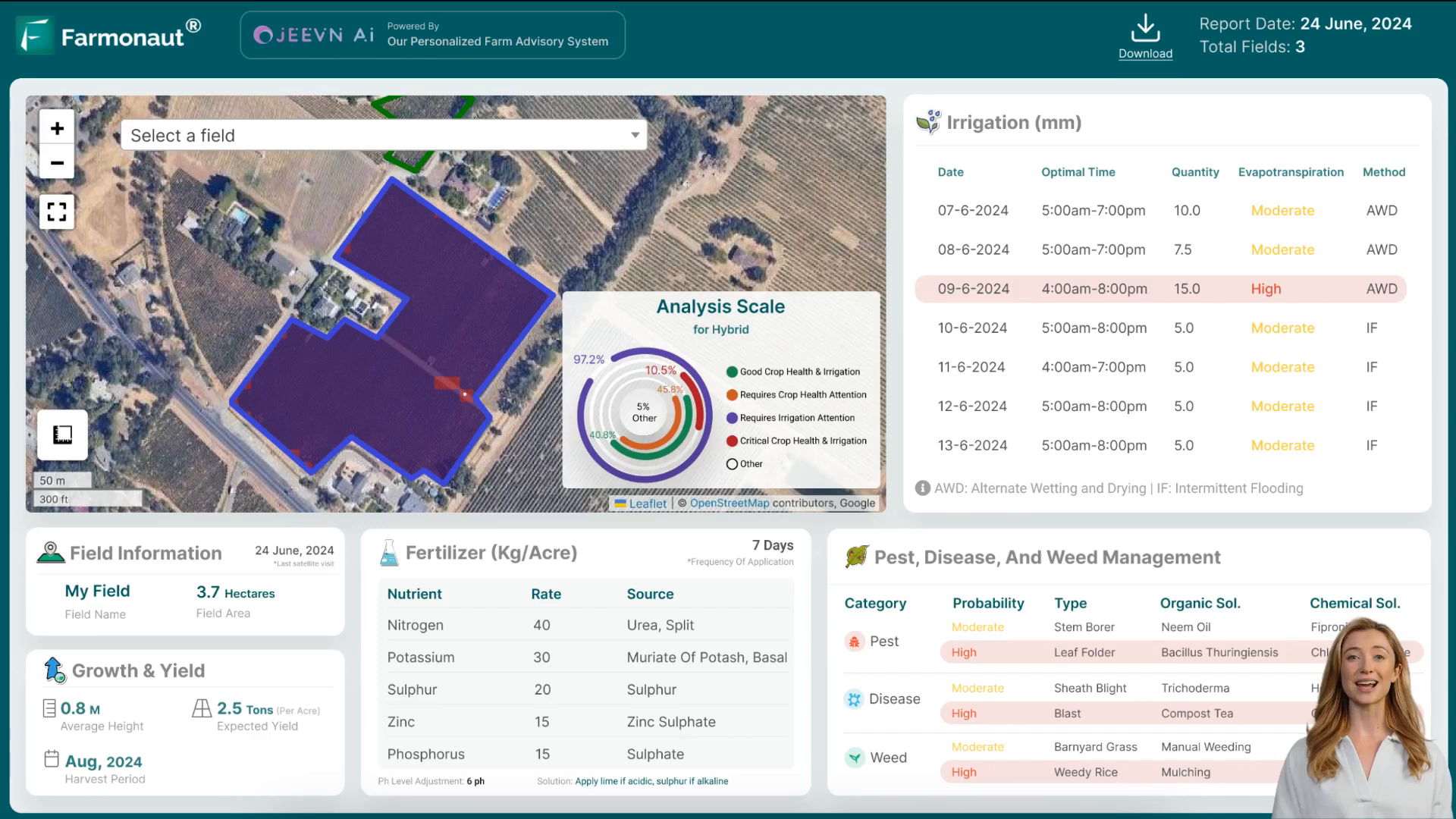
🌱 Optimizing Soil Health for Texas Cotton
Texas cotton farmers know that soil health is the foundation of a successful crop. JEEVN AI provides detailed insights into soil nutrient levels, analyzing concentrations of critical elements like nitrogen, phosphorus, potassium, zinc, and sulfur. This analysis is particularly valuable in Texas, where soil conditions can vary dramatically across the state.
For instance, in the High Plains region, where sandy loam soils predominate, JEEVN AI might detect low nitrogen levels. It would then recommend an appropriate amount of nitrogen fertilizer to apply, ensuring cotton plants get the nutrients they need for optimal growth.
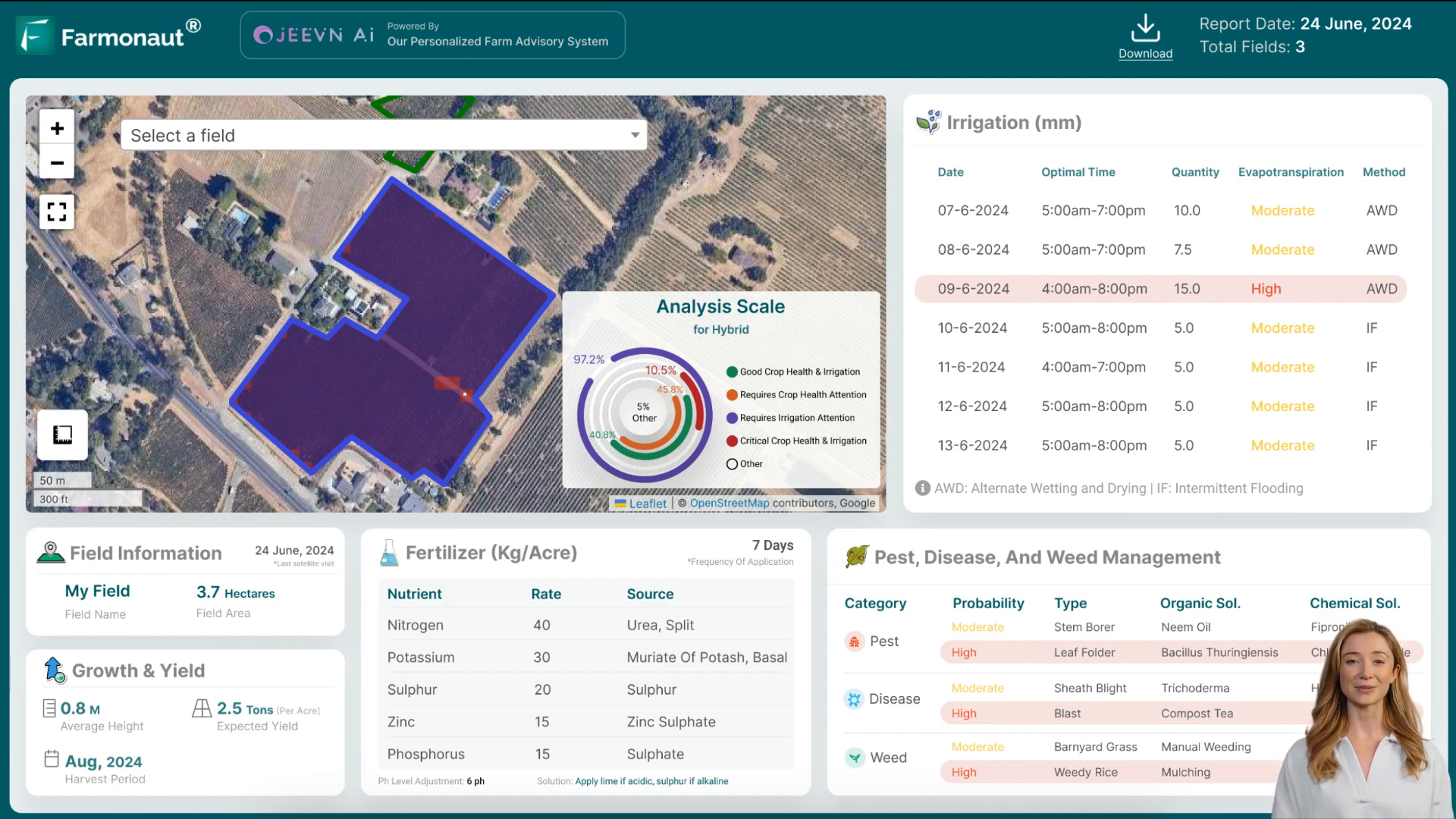
🧪 Mastering Soil pH for Texas Cotton Production
Soil pH plays a crucial role in nutrient availability and overall soil health, a fact well-known to Texas cotton farmers. JEEVN AI continuously monitors soil pH levels and offers corrective measures when needed. This feature is particularly valuable in areas like the Blackland Prairie, where alkaline soils can pose challenges for cotton growth.
If the soil pH falls outside the optimal range for cotton (typically 6.0 to 6.5), JEEVN AI suggests corrective measures. For instance, in more acidic areas of East Texas, it might recommend lime application to raise pH. Conversely, in alkaline soils common in West Texas, it could suggest sulfur application to lower pH.
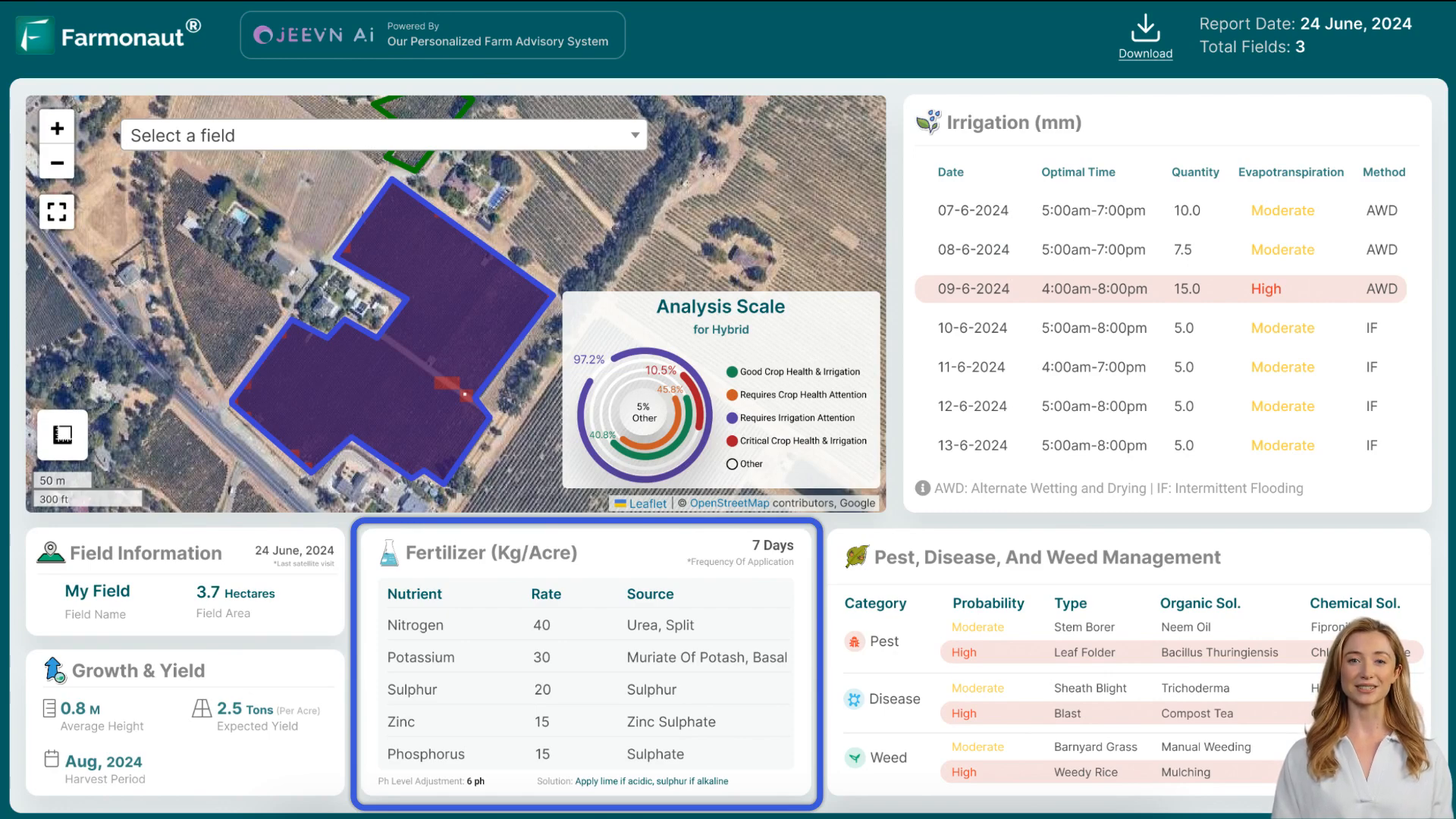
🐛 Early Pest Detection: Protecting Texas Cotton Fields
One of the most impressive features of JEEVN AI is its ability to identify potential pests and diseases affecting cotton crops. This capability is a game-changer for Texas farmers, who face threats from pests like the boll weevil and cotton bollworm.
By analyzing satellite images, weather patterns, and local data, JEEVN AI can predict pest outbreaks and suggest preventive measures. For example, if conditions become favorable for a bollworm infestation in the Texas Coastal Bend region, JEEVN AI will alert farmers and provide preventive strategies to protect their cotton crops.
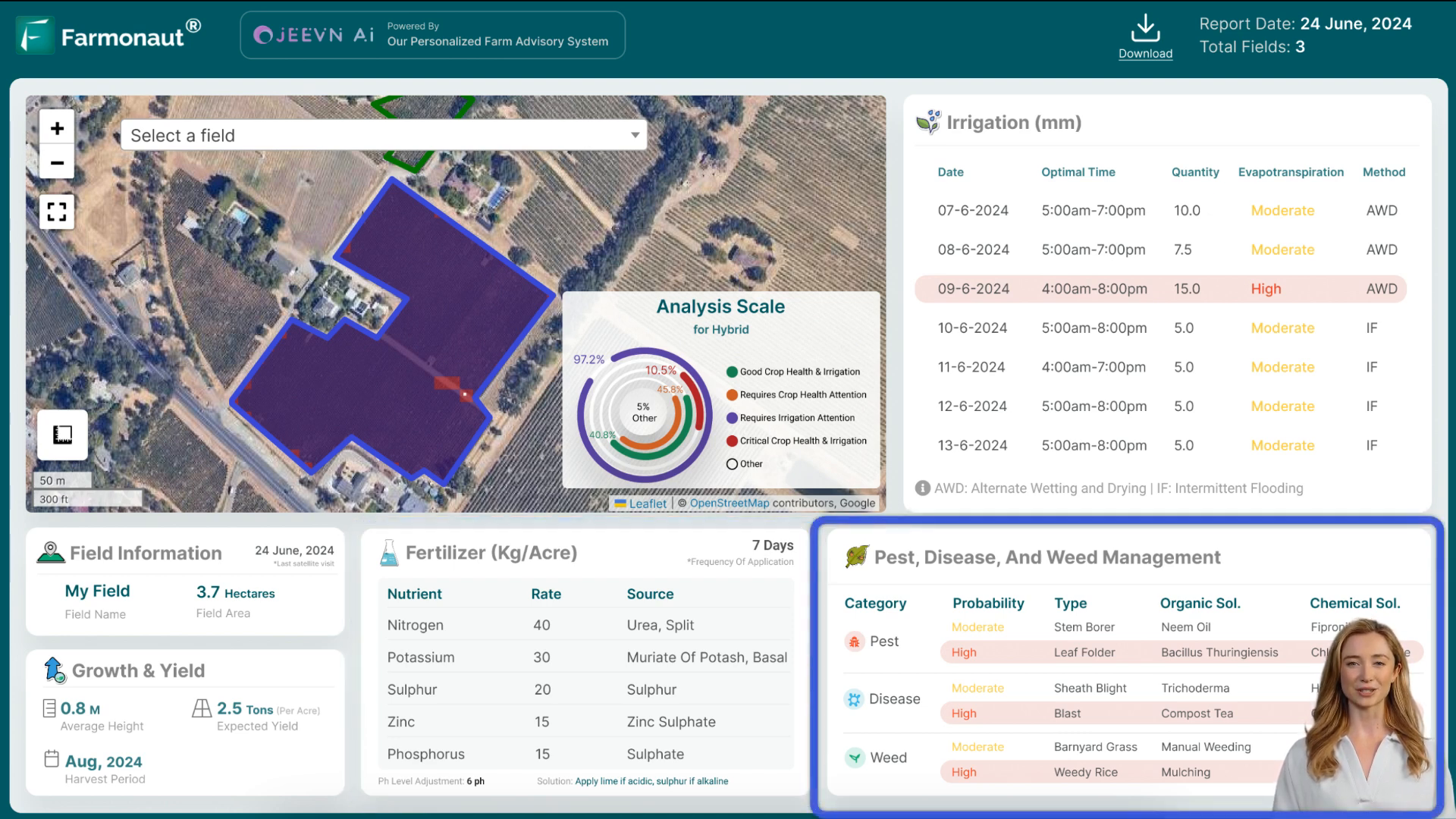
Early detection allows for targeted interventions, reducing the need for broad-spectrum chemical pesticides. This approach not only lowers costs but also promotes environmentally friendly farming practices, aligning with Texas’s commitment to sustainable agriculture.
💧 Efficient Water Management: A Crucial Feature for Texas Cotton Farmers
In a state where water conservation is critical, JEEVN AI’s irrigation management capabilities are particularly valuable. Texas cotton farmers, especially those in drought-prone areas like the High Plains, can benefit significantly from this feature.
JEEVN AI uses a combination of weather data, soil moisture levels, and crop requirements to determine the optimal irrigation schedule. By providing precise recommendations on when and how much to water, it helps conserve precious water resources and prevent over or under-irrigation.
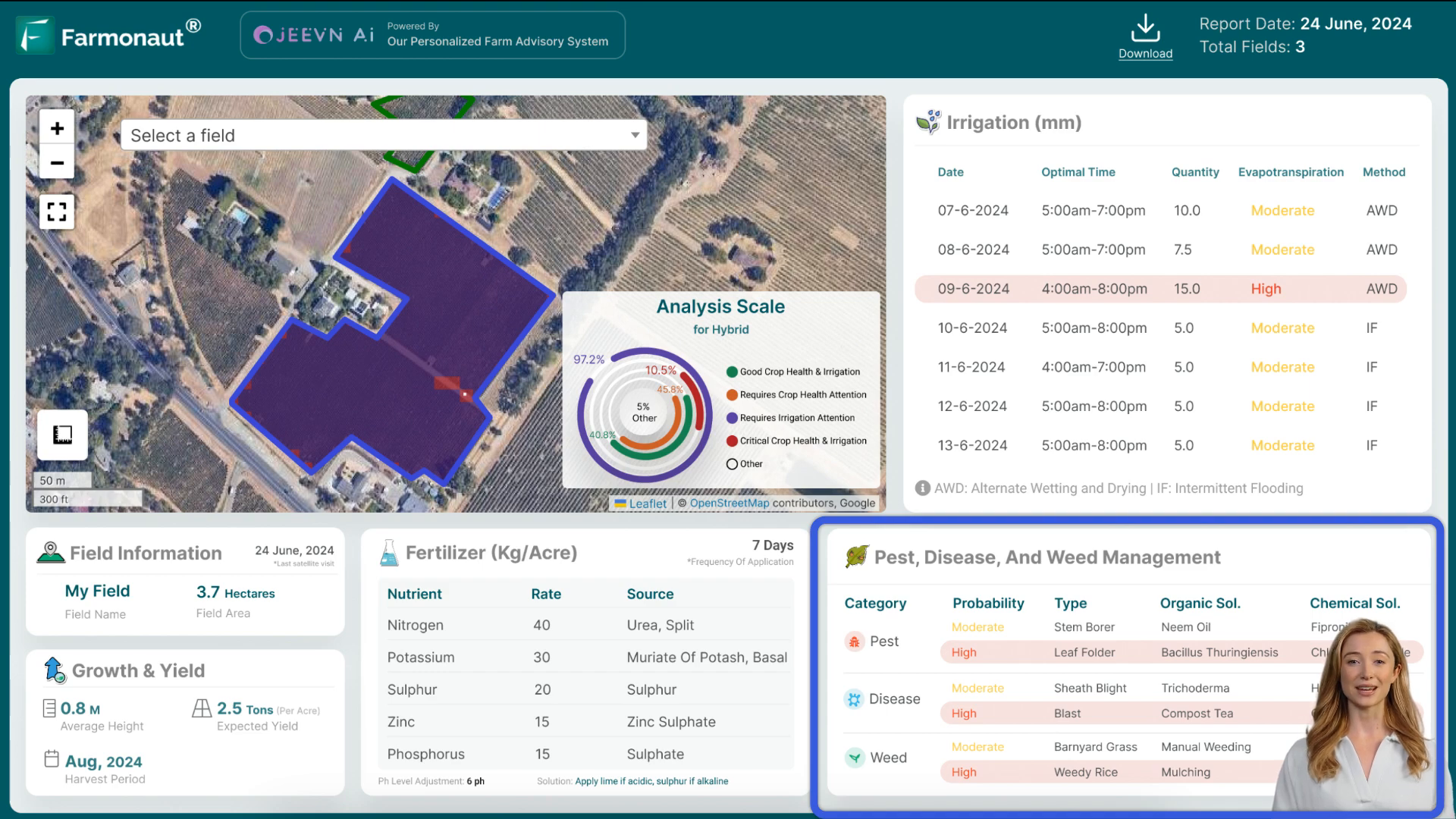
For instance, in the Lower Rio Grande Valley, where water availability can be inconsistent, JEEVN AI might suggest a deficit irrigation strategy during certain growth stages to maximize water use efficiency without significantly impacting yield.
📈 Boosting Texas Cotton Yields with Precision Forecasting
The impact of JEEVN AI on cotton growth and yield in Texas is profound. Beyond ensuring optimal soil conditions, it provides critical predictions on crop growth and yield. This predictive capability is invaluable for Texas cotton farmers looking to maximize their productivity in a competitive global market.
JEEVN AI can forecast:
- Cotton plant height across different regions
- Expected yield per acre for various cotton varieties
- Anticipated time until harvest for each field
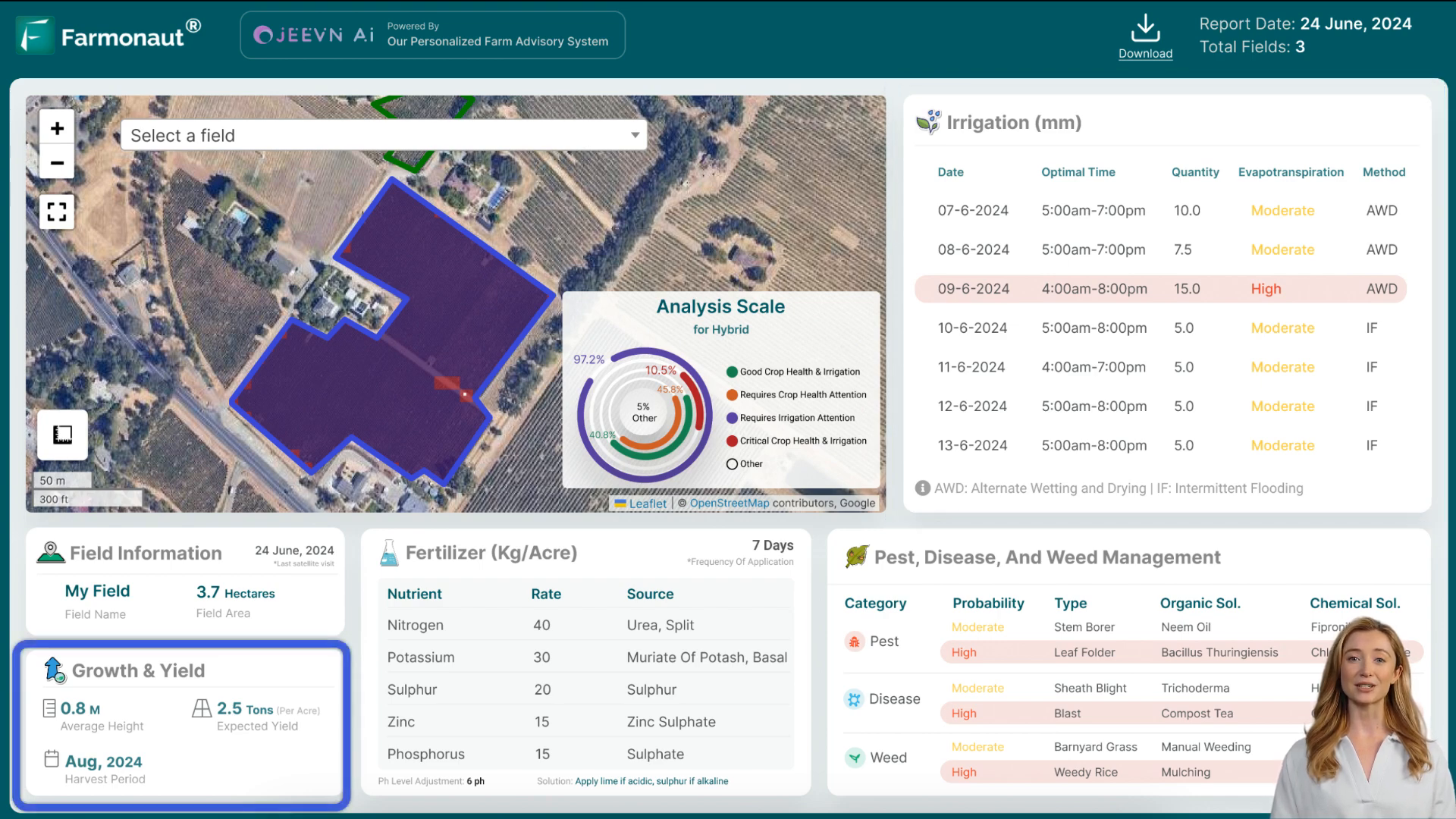
By leveraging these predictions, Texas cotton farmers can make informed decisions to enhance their productivity and plan activities more efficiently. For example, a farmer in the Texas Panhandle might use JEEVN AI’s yield predictions to optimize their harvesting schedule and labor allocation.
🏆 The JEEVN AI Advantage for Texas Cotton Farmers
JEEVN AI is more than just a farm advisory tool; it’s a game-changer for the Texas cotton industry. By leveraging the power of artificial intelligence and satellite technology, it provides farmers with the insights and recommendations they need to optimize their farming practices and achieve greater success.
With JEEVN AI, Texas cotton farmers can:
- Increase cotton yields through precise management
- Reduce input costs by optimizing resource use
- Improve cotton quality through better crop health
- Enhance sustainability of farming operations

As Texas continues to lead the nation in cotton production, tools like JEEVN AI will be crucial in maintaining this competitive edge. By embracing this technology, Texas cotton farmers are not just adapting to the future of farming – they’re helping to shape it.
❓ Frequently Asked Questions about JEEVN AI for Texas Cotton Farmers
Q: How does JEEVN AI account for Texas’s diverse growing regions?
A: JEEVN AI integrates local data and satellite imagery specific to each region, allowing it to provide tailored recommendations for different Texas cotton-growing areas, from the High Plains to the Coastal Bend.
Q: Can JEEVN AI help with Texas-specific pest management?
A: Yes, JEEVN AI is programmed with data on common Texas cotton pests like the boll weevil and cotton bollworm, allowing it to provide early warnings and management strategies specific to these threats.
Q: How does JEEVN AI assist with water management in drought-prone areas of Texas?
A: JEEVN AI uses local weather data and soil moisture information to provide precise irrigation recommendations, helping farmers in water-scarce regions of Texas optimize their water use.
Q: Is JEEVN AI compatible with Texas cotton varieties?
A: Yes, JEEVN AI is customized to work with popular cotton varieties grown in Texas, including both conventional and genetically modified types.
Q: How can JEEVN AI help Texas cotton farmers comply with state regulations?
A: JEEVN AI’s recommendations for pesticide use and water management are designed to align with Texas state regulations, helping farmers stay compliant while optimizing their operations.
As Texas cotton farmers face the challenges of the 21st century, tools like Farmonaut’s Satellite-AI Based Farm Intelligence become not just useful, but essential. JEEVN AI represents the future of farming, bringing space-age technology down to earth and into the cotton fields of Texas. By embracing this innovative solution, Texas cotton farmers are positioning themselves at the forefront of agricultural technology, ensuring the continued success and sustainability of one of the state’s most important industries.



